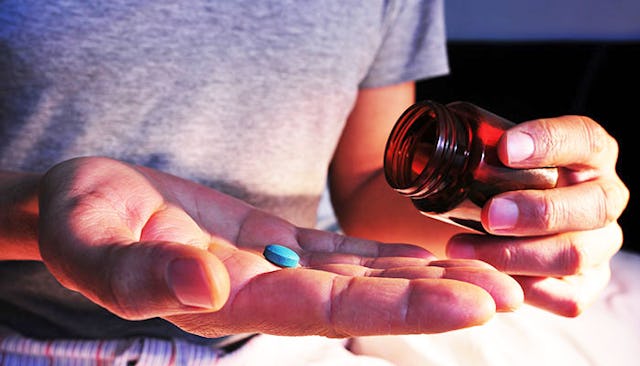Why We Medicated Our ADD Son

Note: I asked my son for his permission before writing this post.
There is evidence that the diagnoses of Attention Deficit Disorder/Attention Deficit Hyperactivity Disorder (ADD/ADHD) are on the rise, for a variety of non-medical reasons. There are stories about schools pushing parents to have their children diagnosed to increase the school’s test scores. Some say that big pharma is encouraging physicians to prescribe ADD/ADHD medications to children who are merely impatient or who misbehave too much.
Diet has been suggested as a cause of ADD/ADHD, with sugar being the main culprit, though this study did not find food additives and sugar to be the problems many think they are. While any one of these may be true in some situations, it doesn’t mean that there aren’t children who have ADD/ADHD and need medication to help manage it. One of the biggest problems, though, is that parents of ADD/ADHD kids are often blamed and chastised for their children’s learning disorders.
My son was diagnosed when he was 8 years old after his teacher suggested he might have ADD. I wasn’t surprised, though his father and I had hoped that his lack of focus was more a function of immaturity than a disorder. He wasn’t a behavior problem in the usual sense of the word. He didn’t disrupt the class or get out of control at home, but he was a fidgety and distracted boy who was most calm when watching television or playing on a computer (or later, video games) which is a classic trait of ADD kids. His intelligence was no match for his ADD, and his schoolwork was below what we—his teachers and his father and I—expected of him. He was put on a 504 Plan to give him the extra help he needed, though implementing it was often a challenge, as some teachers disregarded it. There were times I had to go into full-mom-attack mode to get my son what he needed.
No parent wants to medicate their children for any reason. Starting our son on medication was not a decision we came to easily, but when we saw how much it helped him, we were so relieved. However, contrary to popular belief, medication was by no means a magical chemical formula that changed him from a distracted and average student to a focused and driven one. While it helped him somewhat, it took many years of diligent parenting, and growth on his part, before his maturity and self-motivation caught up with his intellectual capabilities, medicated or not.
About the medication–it was a challenge all through his childhood and teen years to keep his dosage correct. There were times when he was taking too much and would be a little zombie-like, and we’d adjust it down. When he became an adolescent and grew by leaps and bounds, the dosage had to be adjusted again. We made the disastrous mistake during his junior year of high school of seeing a new (and ultimately horrible) psychiatrist (who came highly recommended) who cut his dosage by nearly 80 percent. His grades and his behavior suffered dramatically during that year, and I will never forgive myself for that decision. Why did we wait so long to fix it? We didn’t trust our own instincts. It was a hard lesson.
I am 100 percent certain that my son was correctly diagnosed with ADD. Was his diet perfect? No. Were we as strict and regimented with him as he might have needed? Perhaps not. But it wasn’t just a matter of him “behaving” or “calming down.” His entire being seemed to relax and smooth out when he took his medication. Would it have been better to skip medication and allow him to be fidgety, antsy and unfocused? Should I have tested no sugar, no preservatives, no junk food, no television, no video games over a period of months or years to try to determine what might have been causing his behavior or causing his ADD?
We decided we didn’t want to waste a moment of making his life better by first making it worse. For a child with ADD, it’s not only a behavior problem or a learning problem, it’s also a life problem.
Ultimately, what made the most difference in my son was maturity. And while some may say, “Well, if you’d just been patient, he would have outgrown it,” they’d be wrong. At 21 and about to graduate from college, he manages his ADD and knows when he needs to take his medication (for school, mostly) and when he can skip it. He sees a mental health specialist for his prescription on a monthly basis, not an internist as many do. He’s become a good student who has used the support system at his university to help him succeed. Will he need to continue to take medication, now that he’s an adult? That remains to be seen, and now the decision is his.
To those who say that ADD/ADHD aren’t “real” disorders, that they are a result of parents who are lazy or kids who are undisciplined, or that it’s because of McDonald’s or World of Warcraft or Snickers bars or bad teachers or big greedy drug companies, I would say this: Tell me what you would do if your child had a health problem—maybe asthma or allergies—and you were given the choice of medicating your child or waiting to see if some dietary or behavioral adjustment would fix it. Wouldn’t you want to give your kid the best possible chance to succeed, be healthy and be happy? Would you want to experiment and test theories on your precious child while his youth was being disrupted by a treatable disorder?
We didn’t.
This article was originally published on